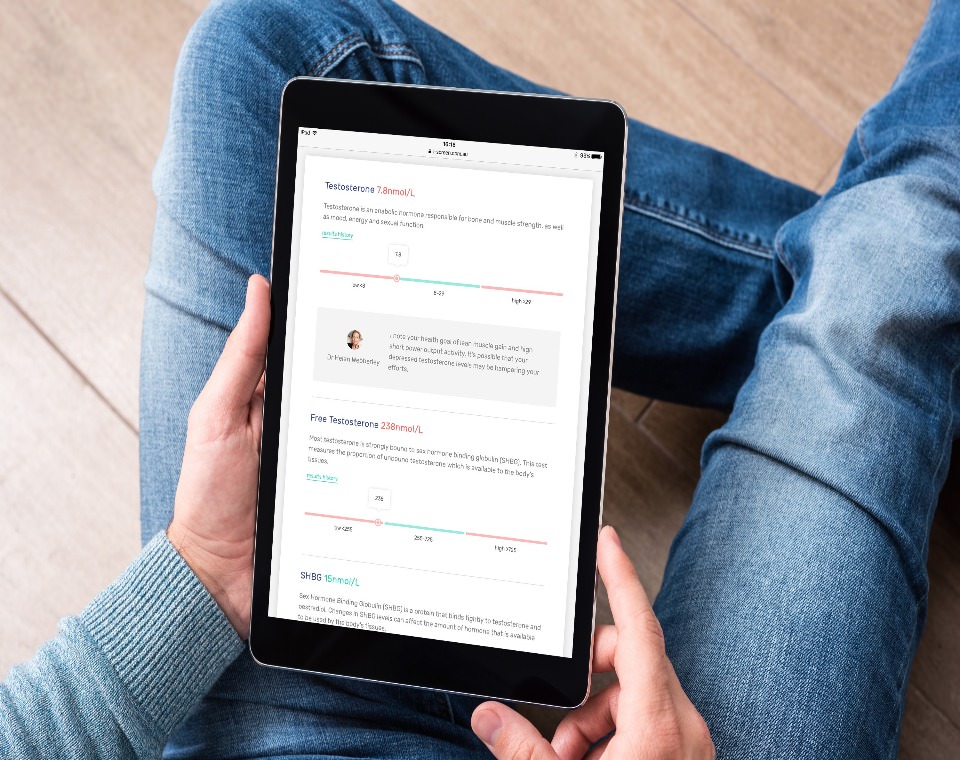

The foundations for masculinity and fertility
It’s not always obvious what could be causing symptoms such as a lack of energy, mood swings or low sex drive. We often put these issues down to diet, lack of sleep or stress but there could be other underlying issues. This comprehensive panel of hormone tests can be used to identify a hormonal imbalance, provide insight into the onset of andropause (male menopause), or investigate conditions that can lead to male infertility.

Testosterone production declines at the rate of approx. 1% each year after the age of 30, but in some men this decline is more rapid. It is quite common for men entering their 40s to experience a loss of sex drive, impotence and depression due to a natural reduction in testosterone production. For men of any age difficulty controlling body weight and the inability to build muscle may indicate a hormone imbalance.
This hormone test can be combined with a Semen Check to provide a comprehensive picture of male fertility.


